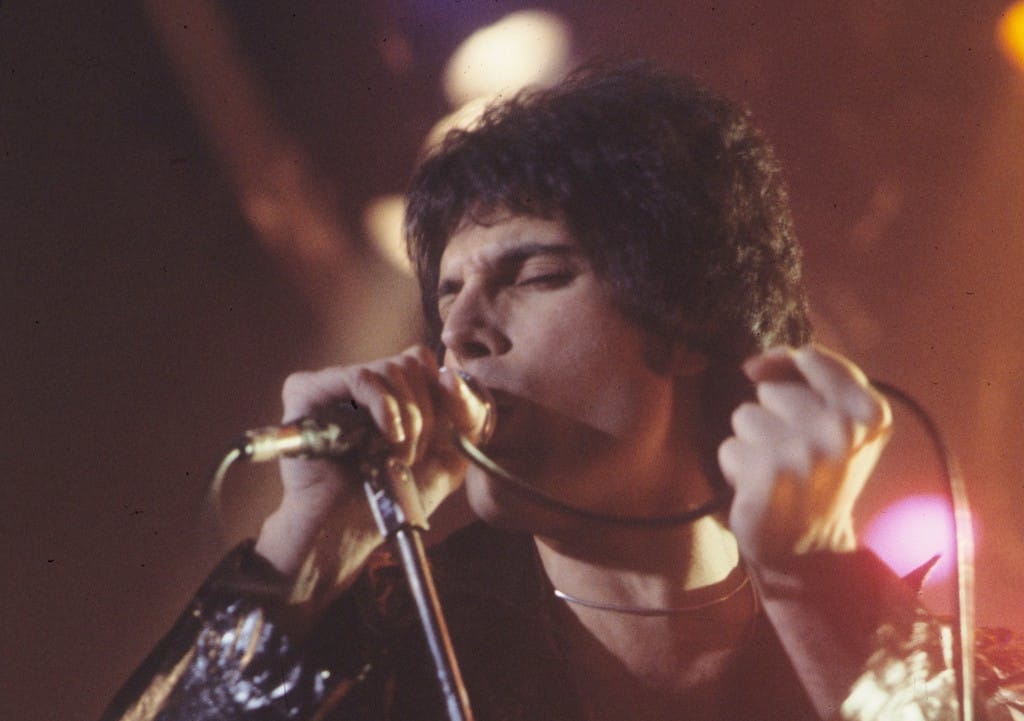Bohemian Rhapsody at the BBC Proms: Freddie Mercury’s Operatic Masterpiece Turns 50
Freddie Mercury’s iconic 'Bohemian Rhapsody' was performed at the 2025 BBC Proms, celebrating its 50th anniversary in an orchestral-choral arrangement that showcased the song’s operatic roots and genre-defying brilliance.

The British rock band Queen’s groundbreaking 1975 hit song ‘Bohemian Rhapsody’ has been on my mind for months. I’ve been listening religiously via internet radio to the BBC Proms, the two-month long largest festival of classical music in the world that rolls out every mid-July to early-September with its hub at London’s Royal Albert Hall, and an increasing number of venues across the UK. Due to the time difference, I listen to the podcasts later rather than live. BBC Radio 3’s strange decision this year to restrict delayed listening only to listeners (who can listen to all Proms concerts up to 4 weeks after the festival end) in the UK meant that I was compelled to listen within 24 hours or not at all.
The Last Night of the Proms, usually on the second Saturday of September, is an institution in itself, broadcast live via radio and television across the world. It is very different in tone and content from the other Proms concerts, with lighter fare and flag-waving and the playing and full-throated singing of British ‘patriotic’ standards (Edward Elgar’s ‘Pomp and Circumstance March no. 1’ to which ‘Land of Hope and Glory’ is sung; and Thomas Arne’s ‘Rule Britannia’) which have attracted controversy for perceived glorification of Britain’s imperial colonial past but are still retained due to ‘tradition.’
I checked the Last Night concert programme on the website in July soon after the festival began. The first item after the interval was listed laconically as ‘Bohemian Rhapsody’ (composer Freddie Mercury, and arranged for orchestra and choir by Stuart Morley). The performers would include former Queen band members, lead guitarist (and astrophysicist) Sir Brian May and drummer Roger Taylor!
Much forethought, sometimes years in advance, is given to the programming of Proms concerts, so I knew there had to be good reason for giving such a special Last Night spotlight to this classic this year. And so I learned that ‘Bohemian Rhapsody’ is fifty this year, having been recorded at various studios around England between August and September 1975, and released on 31 October 1975.
I’ve written before about the extra-ordinary musicianship of Freddie Mercury (1946-1991). Among all the gems he produced, ‘Bohemian Rhapsody’ has to rank as his magnum opus.
One of the many reasons it has caught the popular imagination and endured for five decades and will likely achieve immortality, is that it defies definition.
It has been called a six-minute “suite,” a term more suited (see what I did there?) to western classical music, a set of usually instrumental or orchestral pieces to form a collective whole.
Mercury himself admitted that he amalgamated ideas for three songs into what became ‘Bohemian Rhapsody.’
One could technically analyse it and break it down into this sequence: an a cappella (voices without instrumental accompaniment) introduction, a ballad segment (the “Cowboy Song” Mercury had in mind for many years), an operatic passage, a hard rock segment and an introspective coda (“tail” or concluding section).
The central operatic section meant a lot to Mercury; indeed he called the whole song a “mock opera.” Speaking about the song a year later, he said he “always wanted to do something operatic.” And although he self-deprecatingly added. “I don't really know anything about opera myself. Just certain pieces”, the “mock opera” he conceived in his head (and jotted down, complex harmonies and all, on scraps of paper that were decipherable only to him) was a stroke of genius.
BBC Radio 3 presenter Tom Service usually writes for The Guardian about classical music. So his 2009 piece (“Bohemian Rhapsody: Mamma, we’ve killed a song”) is deeply insightful. Calling it “a musical miracle”, he elaborates: “The precedents of Bohemian Rhapsody are as much in the 19th-century classical traditions of rhapsodic, quasi-improvisational reveries – like, say, the piano works of Schumann or Chopin or the tone-poems of Strauss of Liszt – as they are in prog-rock or the contemporary pop of 1975. That's because the song manages a sleight of musical hand that only a handful of real master- musicians have managed: the illusion that its huge variety of styles – from intro, to ballad, to operatic excess, to hard-rock, to reflective coda - are unified into a single statement, a drama that somehow makes sense. It's a classic example of the unity in diversity that high-minded musical commentators have heard in the symphonies of Beethoven or the operas of Mozart. And that's exactly what the piece is: a miniature operatic-rhapsodic-symphonic-tone-poem.”
Mercury’s staggering vocal range (bass low F [F2] to soprano high F [F6]) and control are a daunting act to follow. At the Last Night concert, tenor Sam Oladeinde gave a commendable account of most of Mercury’s vocal line, with soprano Louise Alder roped in for the falsetto parts (“I see a little silhouetto”, “Galileo”) and three choirs (BBC Singers, BBC Symphony Chorus and National Youth Choir) pitched in for the “Bismillah” section onward, with BBC Symphony Orchestra (and trumpeter Alison Balsom adding brassy sheen to Mercury’s dramatic final piano broken chord) conducted by Elim Chan. But the indisputable scene-stealers were Brian May’s famous guitar solo bridging the ballad and opera sections, and Roger Talyor literally having the last word with an emphatic resounding hammer-blow to the enormous tam-tam.
One sniffy London critic called it “souped-up” and felt it “raised more laughs than goosebumps” but I loved it, and have re-watched it many times.
A day later, C.A.U.S.E. Foundation Bengaluru brought the jukebox musical ‘We Will Rock You’ to Panjim, prolonging my Queen fixation, with ‘Bohemian Rhapsody’ as encore. And they did rock us, as they do every year.
Some later made unfair yet inevitable comparisons to Queen’s recording-studio soundtracks. For my part, I commend their energy, imagination and hard work put in to bring such seamless shows to us annually, like clockwork. They bring “a kind of magic” and are all “champions” in lifting our spirits.
I hadn’t given much thought to the lyrics of ‘Bohemian Rhapsody’ until recently. After reading up and watching many documentaries and interviews, I’m convinced they are not random gibberish as some suggest.
This is Freddie Mercury “coming out” as only he could, with a heartfelt yet cryptic masterpiece.
The a cappella segment is a soliloquy, where he tries to make sense of the “reality” from which he cannot “escape”. In the ballad, he “man” he confesses to killing is his former self before he acknowledges his sexuality.
Scaramouche (a commedia dell’arte stock character. “little skirmisher”, often trouble-maker and punished for it), fandango (an Iberian-origin dance once condemned by the Church as “godless”), Galileo (Italian astronomer persecuted for his findings which challenged established beliefs), Figaro (the Beaumarchais ‘hero’ modelled on another commedia dell’arte character Harlequin and who figures in operas by Mozart and Rossini) all allude in the operatic segment to the ostracism Mercury feels for the “monstrosity” (in society’s eyes) of his sexual orientation. He appeals to God (“Bismillah”) but feels damned (by “Beelzebub”).
The coda has quiet if defiant self-acceptance: “Anyone can see, nothing really matters to me.” The more I listen and study ‘Bohemian Rhapsody’, the more I admire this exquisite “miniature operatic-rhapsodic-symphonic-tone-poem” and the genius that was Freddie Mercury.
This article first appeared in The Navhind Times, Goa, India.





